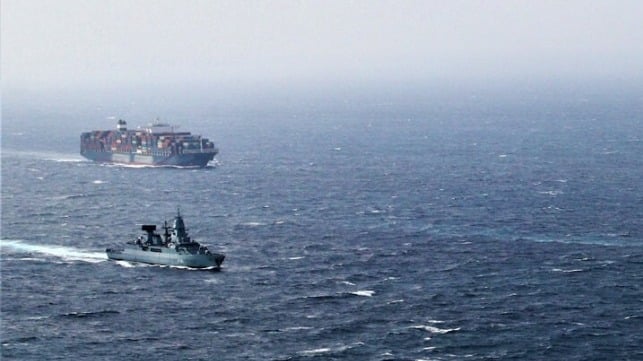The EU's Red Sea Security Mission Appears to be Getting Smaller

The German frigate Hessen has departed the Red Sea without replacement, the Bundeswehr reported Sunday. Germany will send another air-defense frigate to resume the mission in August.
"Germany and its partners are not standing idly by while the Houthi militia carries out its illegal attacks," said German defense minister Boris Pistorius in a statement.
The departure of Hessen leaves Greek, French and Italian forces to shoulder the EU "Operation Aspides" naval mission in the Red Sea. Each of these three nations has contributed one air-defense frigate. Denmark's Ivar Huitfeldt and Belgium's Louise-Marie were supposed to join the operation, but are both out of action for now because of weapons-system failures.
Aspides' leader, Rear Admiral Vasilios Gryparis, told Euronews that the coalition needs more ships to restore the flow of maritime commerce. "We think that since each ship can accompany a certain number of merchant ships, if the number of ships was larger we could accompany more ships and therefore we could hope for a recovery of shipping traffic through these straits," Gryparis said.

that matters most
Get the latest maritime news delivered to your inbox daily.
The parallel, U.S.-led Operation Prosperity Guardian remains comparatively well-resourced, with multiple Aegis destroyers on station and a carrier strike group in the Gulf of Oman. Unlike the EU coalition, U.S. forces have routinely targeted and destroyed missile and drone threats on the ground within Yemen, before launch - a degree of intervention that EU leaders have insisted they will not do.
After months of regular Houthi attacks and counterattacks, the military operations have grown quieter over the past week. The last air-defense engagement reported by U.S. forces in the Red Sea was on April 16.
